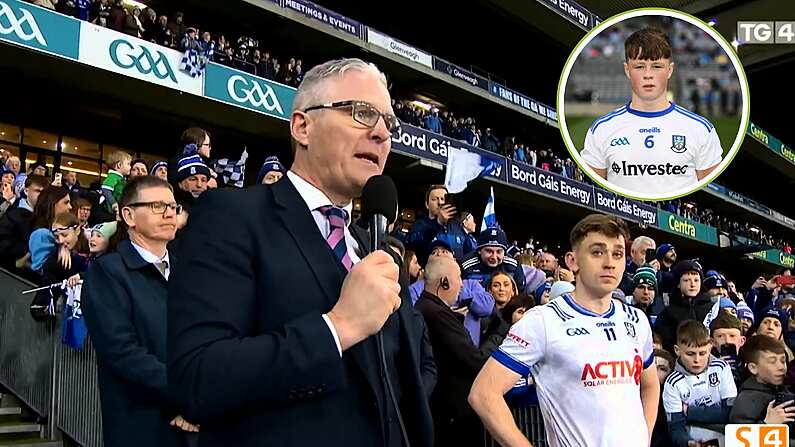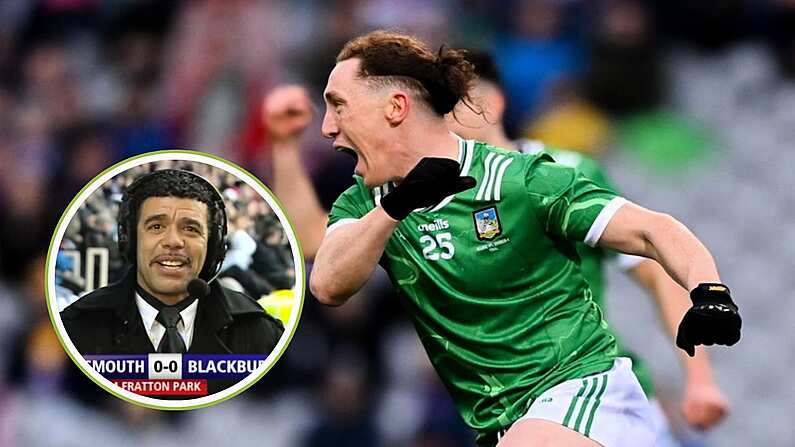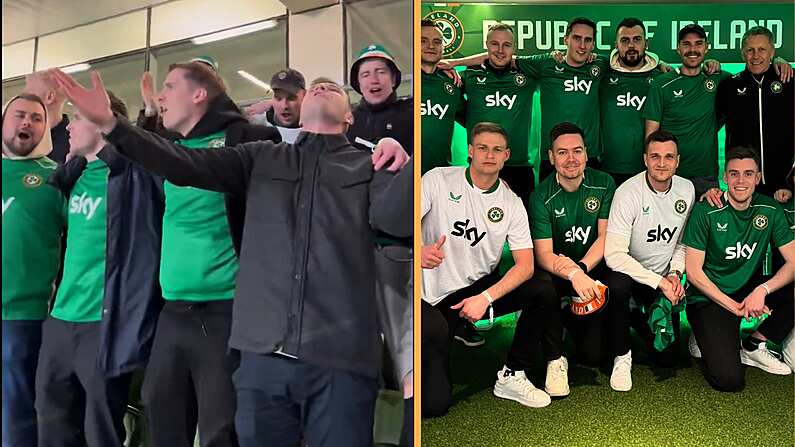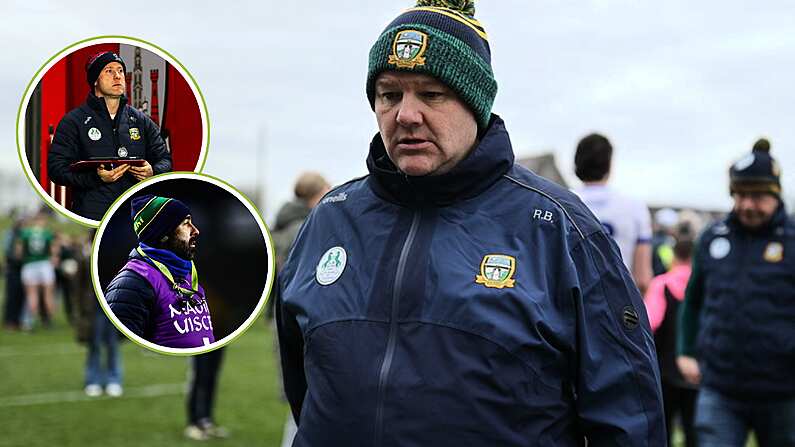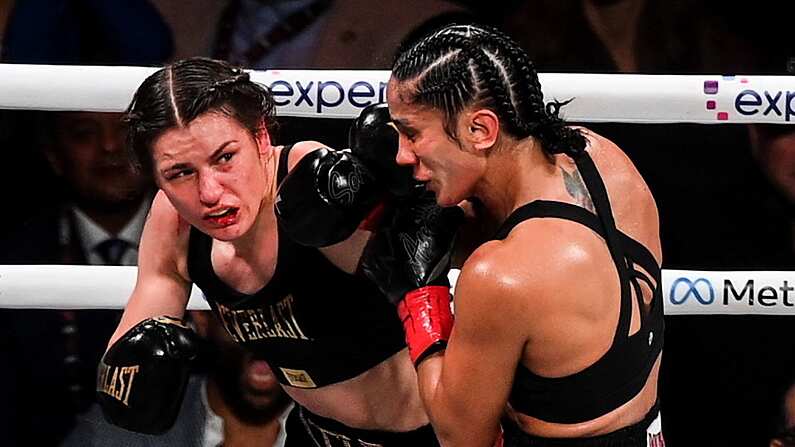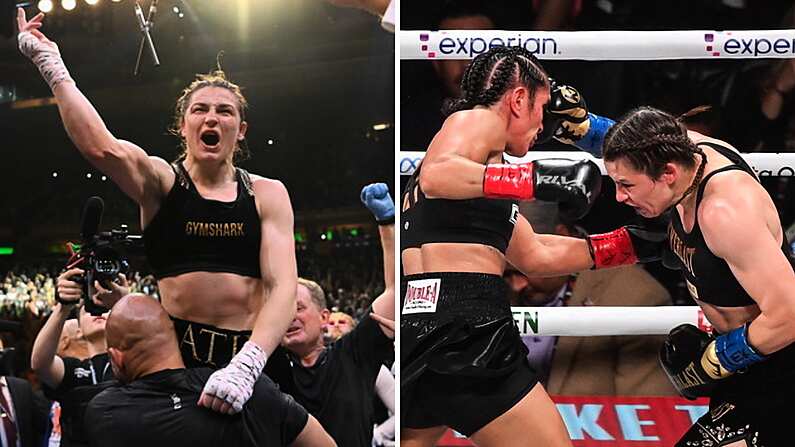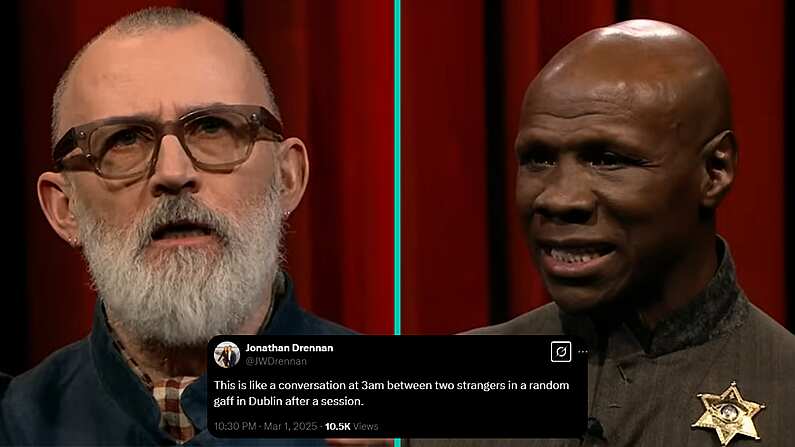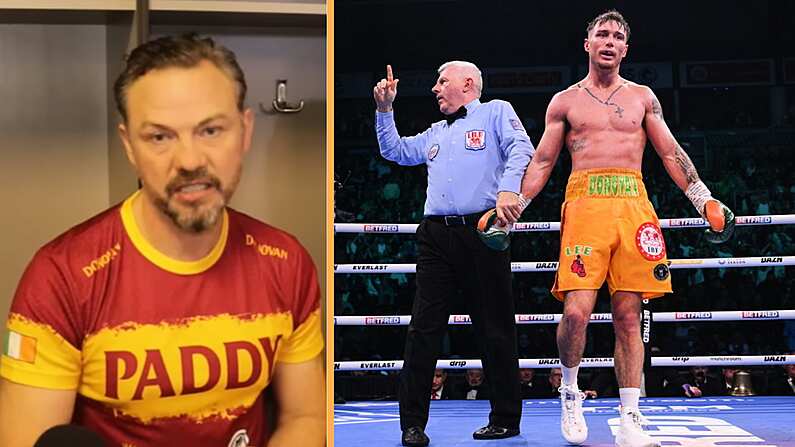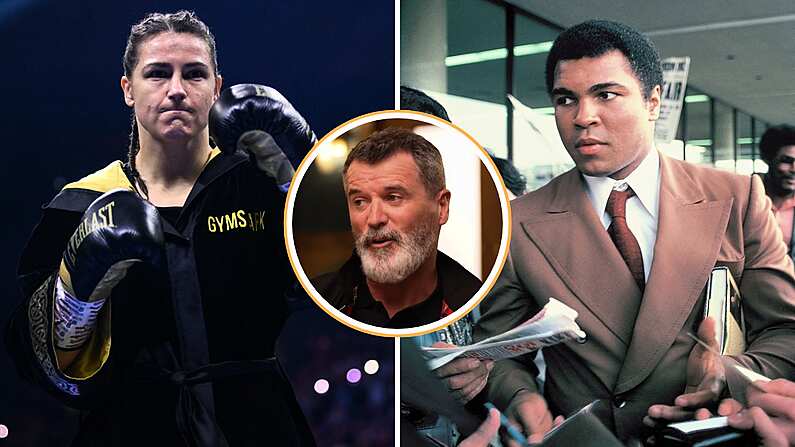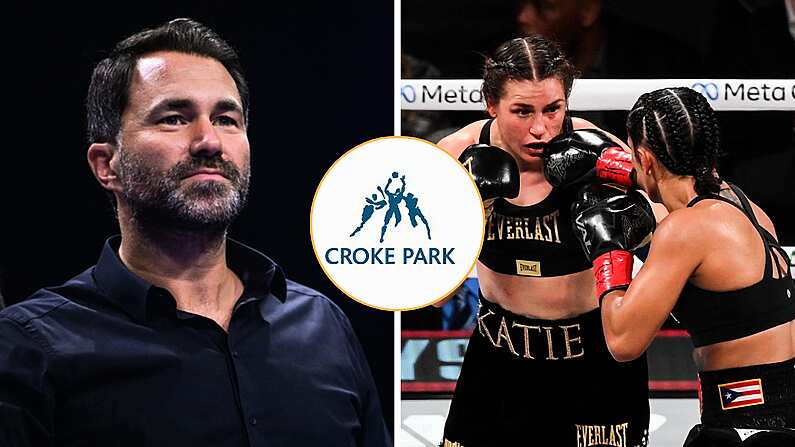In the wake of the International Boxing Association (AIBA)'s decision to allow professionals to fight in the Olympic Games, John Breen, the legendary Belfast trainer who guided several boxers to world titles including Dave 'Boy' McAuley and Victor Cordoba, has called the move "degrading" to boxing.
Brian Magee, himself a world champion and an Olympian under the Irish flag in 1996, thinks that the revolutionary step could "ruin a lot of young fellas' dreams" and make it very hard for "someone coming from a working class background" to make a breakthrough.
Irish world champion Michael Conlan thinks that the "fantastic" media publicity surrounding the professional game would enhance the Olympics. And he is confident that he would be more than a match for any pro fighter he might come up against.
Currently on the plane to Azerbaijan in search of "pros" to beat up 🙈😂 about to take off, so long folks 😀🚀😎🎣
— Michael Conlan (@mickconlan11) June 2, 2016
Conlan's confidence stems from his belief that a pro (used to longer fights of up to twelve rounds) fighting an amateur (who commonly scraps for three rounds) is like a "long distance runner" taking on a sprinter in a "100 metre race," an analogy he drew on 'Off The Ball' this week. Donegal's Jason Quigley, a European champion at amateur and now fast establishing himself in the professional arena, called the latter a "different sport" from the former on Highland Radio. However former Olympic silver medallist and superstar of the professional game Amir Khan dismissed the difference to an extent: "you're only fighting three rounds, but the minutes of the rounds are going to be the same".
Speaking from Belfast, the aforementioned Breen highlights the chasm between the two codes, and suggests that such a gap is a reason why professionals will be reluctant to compete in an Olympics. He thinks there is a misunderstanding among common punters who are experiencing visions of Floyd Mayweather, Tyson Fury et al stepping through the ropes in Rio or beyond and that big names will realise the pitfalls in entering the world of Olympic boxing.
Everyone's talking about all the good world champs (fighting). (It) doesn’t make you (able to) fight a three-round fighter...most good amateurs could beat a pro fighter (in the Olympics).
Magee concurs that, in an Olympic bout, "a good amateur has always got a chance against a pro." In a shorter fight, the Antrim football trainer says, "fitness is not going to be in the equation. A pro's strength is stamina and endurance."
Conlan and Quigley have outlined qualifications to the rule that professionals would be left licking their wounds in a three-round tussle. Both stated that Quigley could hold his own over the shorter contest, having made the switch fairly recently, and that certain professionals are more suited to the nine-minute format than others. Conlan picked out Vasyl Lomachenko (WBO featherweight title holder) and veteran Manny Pacquiao as examples of athletes whose styles are perfect for Olympic boxing.
It is worth pointing out at this juncture that the strictly 'amateur' nature of Olympic boxers has, funding aside, been debatable for a while now. Joe O'Neill of irish-boxing.com made the point recently that professional fighters who had fought less than 15 times could qualify for London 2012 through the 'semi-professional' World Series of Boxing. The limit was then increased to 20 for Rio-the AIBA have now simply removed the limit.
pros with <15 fights could qualify via WSB in 2012. Upped to 20 bouts for 2016 & now limit is removed. Pointless hysteria
— Joe O'Neill (@J0E_90) June 1, 2016
Despite his opinion that top 'amateurs' could more than hold their own against pros, Magee worries about the danger of a big professional name taking on a newly blooded amateur. When asked whether someone could get hurt under the new rules due to this possibility, he replies "without a doubt" and interestingly outlines the potential need for a limit on the number of pro fights an athlete has completed in order to remain valid for Olympic qualification, as opposed to the current scenario where the criteria is open to all professionals, no matter how experienced or otherwise they may be.
Steve Wellings, boxing writer and author of the popular 'Irish Boxing Review', follows a similar line of thought to Breen and Magee. He told me that he can see "amateurs beating top pros", but warned that "we could end up (with) mismatches, huge variations in skill".
Wellings painted the rather gruesome hypothetical scenario where Sergey Kovalev (the Russian destroyer exercising monstrous dominance over the professional light-heavyweight division) comes into contact with some wet-behind-the-ears young amateur who has scraped through qualifying. Although the argument could clearly be made that such David-and-Goliath affairs are simply part of the nature of competition, it is undoubtedly a risk that some countries' amateur boxing programmes may not adequately prepare boxers for seasoned fighters who have trained for a decade in professional stables.
This could make such a fight, to quote current cruiserweight world champion Tony Bellew, "dangerous".
Of course, much of the fear that professionals would dominate amateurs is fuelled by the assumed stark contrast between the lifestyles of amateur and professional fighters. The assumption is one that irritates Conlan ("we don't train like amateurs. It’s our full-time job") and, despite his concern regarding possible mismatches, Wellings doesn't put it down to a strictly amateur-professional gulf. Rather, it is a question of degree-in some instances one could question just how 'amateur' a fighter is:
(Amateurs) are getting grants...healthy wages. People say it (the AIBA decision) is crushing the dreams of young guys, but they are earning big money...so what is amateur?
Magee opines that for most amateur fighters, even if they are "professional in a way", the fight game "is not their livelihood". Breen and Magee both suggest that Conlan is very much an exception to the rule.
The best amateur fighter in his weight, conditioned in Zaur Antia's top-class High Performance Unit and backed by the Irish Sports Council, there are few amateurs as finely-tuned and well-supported as Conlan and few in the professional game who would be overly confident stepping into the ring against the young Belfast scrapper. Is it therefore inaccurate to use Conlan as an example to assuage fears of amateurs being heavily beaten? Perhaps, though Paddy Barnes wouldn't appear to think so, claiming that no one in the Olympics should have any fears over a potential professional opponent and explaining the higher knock-out rate in the pro game (which perhaps contributes to the perception that professionals could hurt amateur opponents):
People are saying amateur boxers are going to get hurt and (that) they’re novices. You can’t go to the Olympics if you’re a novice or if you’re a kid.
The only reason there’s so many knockouts in pro boxing is because the gloves are different from the amateur boxers’ ones that are spongy. These ‘knockout artists’ in the pro game wouldn’t knock out anyone in the amateurs.
Wellings went on to outline another difficulty pros may face in adjusting to the Olympic process, one that Andy Lee brought up when speaking to Balls: namely, the need to "make weight four, five, six times over a ten day period", something that Lee said would discourage him personally from returning to the Olympic stage. Conlan warned that the difference between having to "manage weight over a two week period in the Olympics" and having "one or two fights here, one or two fights there over the course of the year" would make it hard for pros to "adapt" to the Olympic process, a sentiment repeated by messrs Barnes and Quigley.
Speaking to Balls.ie's Gavin Cooney, Lee seemed to echo Conlan's assertion that the welcoming of professional fighters could potentially glamorise the Olympics. Since the announcement, Khan and Wladimir Klitschko have seemingly confirmed this somewhat by declaring their desire to fight for Pakistan and Ukraine respectively in Rio. But Breen doesn't see why, with the lack of financial incentive, any of the highly paid professionals would want to lace up at a Games.
What are they going to pay them? They're talking about all these big superstars (fighting)...Mayweather would laugh at it (if asked to fight).
Even Quigley, who hinted that he could make a return for Rio ("who knows, I could have the Irish vest on once again") appeared to back-track when considering the possibility of fighting for a pittance compared to what he would rake in currently.
We’re professional athletes. We get paid a lot of money to get into the ring. So why would we go back and get into the ring for nothing again?
Magee shudders at the thought of professionals "taking all the limelight, all the sponsorship". The former Holy Trinity man thinks the professionalisation of the Games is part of boxing "turning into a sports showpiece", with little regard for fighters trying to break into the sport at the highest level. To Magee, the amateur Olympic stage was an ideal "platform" for a professional career, one that he found wholly beneficial:
It would be very hard (to make it otherwise). I was number 5 (amateur) in the world, (the Olympics) got me a better deal with the promoter to turn pro...it's a great system, so why change it?
Breen, too, thinks that the changes endanger a system that has thus far proved successful in the development of amateur fighters into professional money-makers, one which brings "guys up" and allows them to try to "win Olympic gold, turn pro and earn some money."
Magee is clearly deeply endeared to the Olympic ideal. In an ideal world, he believes, we should return to pre-1984, before the International Olympic Committee gave the green light for professionals to compete at the Games. For him, allowing pro fighters entry ruins some of the magic, the fantasy for young boxers who dream of representing their country at an Olympic Games.
Going out to run in the morning, the dream for young boxers was the Olympics. Now they're going to think, ‘Why don’t I turn pro?'
Why indeed.


